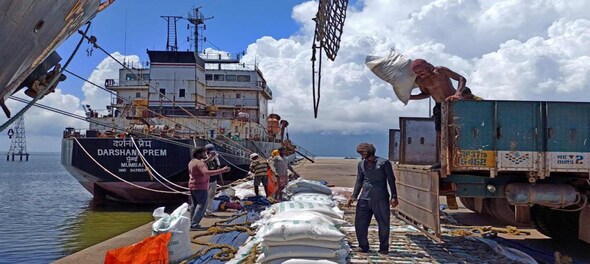
The International Monetary Fund (IMF) has "encouraged" India to lift its ban on the export of non-basmati white rice, citing potential global inflationary impacts. India, the world's largest rice exporter, imposed restrictions on rice exports effective July 20 to keep local prices stable ahead of the upcoming festive season and the 2024 general election.
In the current environment, these types of restrictions are likely to exacerbate volatility in food prices in the rest of the world and lead to retaliatory measures, Pierre-Olivier Gourinchas, Chief Economist of the International Monetary Fund (IMF) said in a press conference.
"So, they are certainly something that we would encourage the removal of these types of export restrictions because they can be harmful globally," he said.
The news comes soon after reports on rice hoarding in the United States among Indian households.
The ban applies to about 25 percent of India's total rice exports but does not affect the export policy for par-boiled non-basmati rice and basmati rice, which are the major contributors to India's rice exports.
India's non-basmati white rice exports were valued at $4.2 million in the 2022-23 fiscal year, compared to $2.62 million in the previous year. Key export destinations for non-basmati white rice from India include the United States, Thailand, Italy, Spain and Sri Lanka.
Later in an interview, when asked about India's rice export ban, Daniel Leigh, Division Chief, IMF Research Department, told PTI that the context is clearly, an environment of declining inflation around the world.
"We see it in the interest of the overall global community to keep that food and energy inflation trend down. Now the challenge is that if we see restrictions in other countries as well as India, we've been very clear that in our view we understand the domestic consideration, but if you see that global impact, then that would go against the reduction in inflation. So our perspective is that such restrictions should be phased out as soon as feasible," Leigh said.
With agency inputs.
First Published: Jul 26, 2023 2:38 PM IST
Check out our in-depth Market Coverage, Business News & get real-time Stock Market Updates on CNBC-TV18. Also, Watch our channels CNBC-TV18, CNBC Awaaz and CNBC Bajar Live on-the-go!


Mark Mobius reveals how markets will react if NDA wins 400+ Lok Sabha seats
May 15, 2024 8:09 PM
Wine shops and bars to remain shut for 4 days in Mumbai in 4 weeks, check details
May 15, 2024 7:52 PM
INDIA bloc will win majority seats in Bihar, says Tejashwi Yadav
May 15, 2024 4:20 PM

